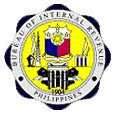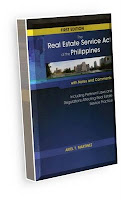_________________________________________________
.
.
Revised schedule of zonal values of real properties. RDO No. 57-Biñan City, West Laguna/ RDO No. 39-South Quezon City
Revised schedule of zonal values of real properties.
_______________________________________________________
Mandaluyong raising business tax and fees
December 27, 2019 | 12:31 am [ bworldonline.com ]
MANDALUYONG CITY is increasing its business tax, mayor’s permit and other fees by around five percent next year after keeping rates unchanged for eight years.
According to Ordinance No. 750, S-2019, published Monday, the annual graduated and fixed taxes on businesses as well as the mayor’s permit fee, garbage service charge and sanitary inspection fee will increase by around five percent starting Jan. 1 next year.
Moreover, the rate for renewal of business permit will go up to 3.15% of total gross sales from three percent currently.
A check with the office of Mandaluyong’s Sangguniang Panlungsod showed the city did not increase taxes and fees since 2011.
According to Republic Act No. 7160, or the “Local Government Code of 1991,” local governments can adjust their tax rates no more than once every five years but should not “exceed 10 percent of the rates fixed under this Code.”
The new ordinance amends certain provisions of Ordinance No. 484, S-2011 or the revenue code for the City of Mandaluyong (2011).
Affected sectors include manufacturers, exporters, importers, assemblers, wholesalers, distributors or dealers of goods, retailers, contractors, owners of food establishments such as cafés, cafeterias, ice cream and refreshment parlors, restaurants, carinderias and food caterers, real estate dealers and lessors, banks and other financial institutions, dealers in securities and foreign exchange dealers, owners and operators of amusement and vending machines, and amusement places, among others. — B. M. Laforga
_______________________________________
House may amend local gov’t code to force property valuation adjustments
December 26, 2019 | 10:23 pm [ bworldonline.com ]
A KEY legislator said the House intends to review a rarely-enforced Local Government Code provision requiring real estate values to be adjusted every three years.
Representative Noel L. Villanueva of Tarlac, who chairs the House Committee on Local Government, said Thursday that the chamber will study the feasibility of adjusting real estate valuation on the timetable prescribed by the Local Government Code of 1991.
“We have to study if we can make it mandatory on the part of LGUs (local government units) to comply with the provision of law, the local government code, that they should adjust real property valuation or taxation every three years. But the wording of the law is directory, not oftener than three years,” Mr. Villanueva told BusinessWorld by phone Thursday.
Republic Act 7160 or the Local Government Code requires realty valuation adjustments every three years. Since local officials are also elected every three years, the requirement is often been ignored.
According to Mr. Villanueva, the law is still “directory” and does not compel LGUs to comply with the realty tax adjustment.
“It is only directing them to review and adjust the schedule of real property taxes not over three years. That is the wordings of the law. So it’s more directory, it is not mandatory. So there is no heat in it. You cannot compel LGUs to raise their real property tax… because as you know, in the local government setting, taxes are political suicide. If it is made mandatory, and there is a penalty for those who would not comply, that is still to be discussed in the Congress,” Mr. Villanueva said.
Mr. Villanueva also said that he will file a bill to “compel LGUs to comply” with the mandatory adjustment of real property taxation should it be deemed feasible. Mr. Villanueva said that may involve amendments to the Local Government Code which will specify “corresponding administrative and criminal sanctions.”
“It’s amendatory to a particular provision. I have to see first if that is part of (the) bill of Rep. Mariño (Mario Vittorio A. Mariño) of Batangas. If not, then I will propose (the) amendment” Mr. Villanueva said.
Mr. Mariño is one of the principal authors of House Bill 4664 or the Real Property Valuation and Assessment Reform Act which seeks to centralize the valuation and assessment of real property.
The bill, which is also known as Package three of the Comprehensive Tax Reform Program (CTRP), was approved on third and final reading by the House of Representatives on Nov. 25. The Senate received the bill the day after.
Section 12 of the bill provides that “all real properties, whether taxable or exempt, shall be valued or appraised based on prevailing market values in the locality where the property is situated.”
The Real Property Valuation and Assessment Reform Act is one of the priority bills that President Rodrigo R. Duterte outlined in his 2019 State of the Nation Address (SONA). — Genshen L. Espedido
____________________________________________
BIR RMC 135-2019 : Reiterates the prescribed procedures in the availment of the Tax Amnesty on Delinquencies and additional clarification on issues raised relative thereto
| RMC No. 135-2019 |
Reiterates the prescribed procedures in the availment of the Tax Amnesty on Delinquencies and additional clarification on issues raised relative thereto
Digest | Full Text [ Please click on this link ] | December 11, 2019 |
Subscribe to:
Posts (Atom)
Revenue Regulations (RRs) are issuances signed by the Secretary of Finance, upon recommendation of the Commissioner of Internal Revenue, that specify, prescribe or define rules and regulations for the effective enforcement of the provisions of the National Internal Revenue Code (NIRC) and related statutes
Revenue Memorandum Orders (RMOs) are issuances that provide directives or instructions; prescribe guidelines; and outline processes, operations, activities, workflows, methods and procedures necessary in the implementation of stated policies, goals, objectives, plans and programs of the Bureau in all areas of operations, except auditing.
Revenue Memorandum Rulings (RMRs) are rulings, opinions and interpretations of the Commissioner of Internal Revenue with respect to the provisions of the Tax Code and other tax laws, as applied to a specific set of facts, with or without established precedents, and which the Commissioner may issue from time to time for the purpose of providing taxpayers guidance on the tax consequences in specific situations. BIR Rulings, therefore, cannot contravene duly issued RMRs; otherwise, the Rulings are null and void ab initio
Revenue Memorandum Circular (RMCs) are issuances that publish pertinent and applicable portions, as well as amplifications, of laws, rules, regulations and precedents issued by the BIR and other agencies/offices.
Revenue Bulletins (RB) refer to periodic issuances, notices and official announcements of the Commissioner of Internal Revenue that consolidate the Bureau of Internal Revenue's position on certain specific issues of law or administration in relation to the provisions of the Tax Code, relevant tax laws and other issuances for the guidance of the public.
BIR Rulings are official position of the Bureau to queries raised by taxpayers and other stakeholders relative to clarification and interpretation of tax laws.
real estate central philippines
Copyright ©2008-2020
Copyright ©2008-2020









